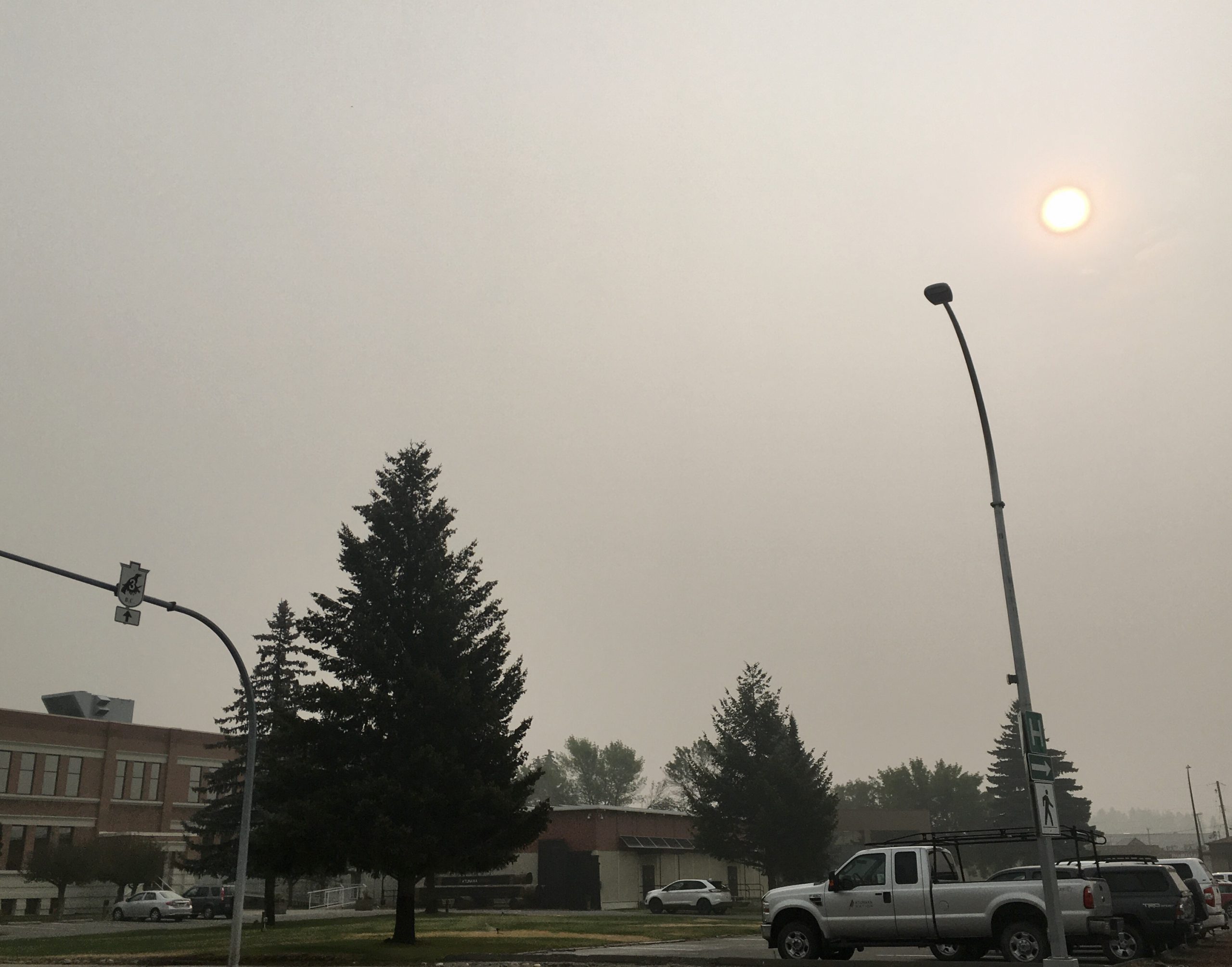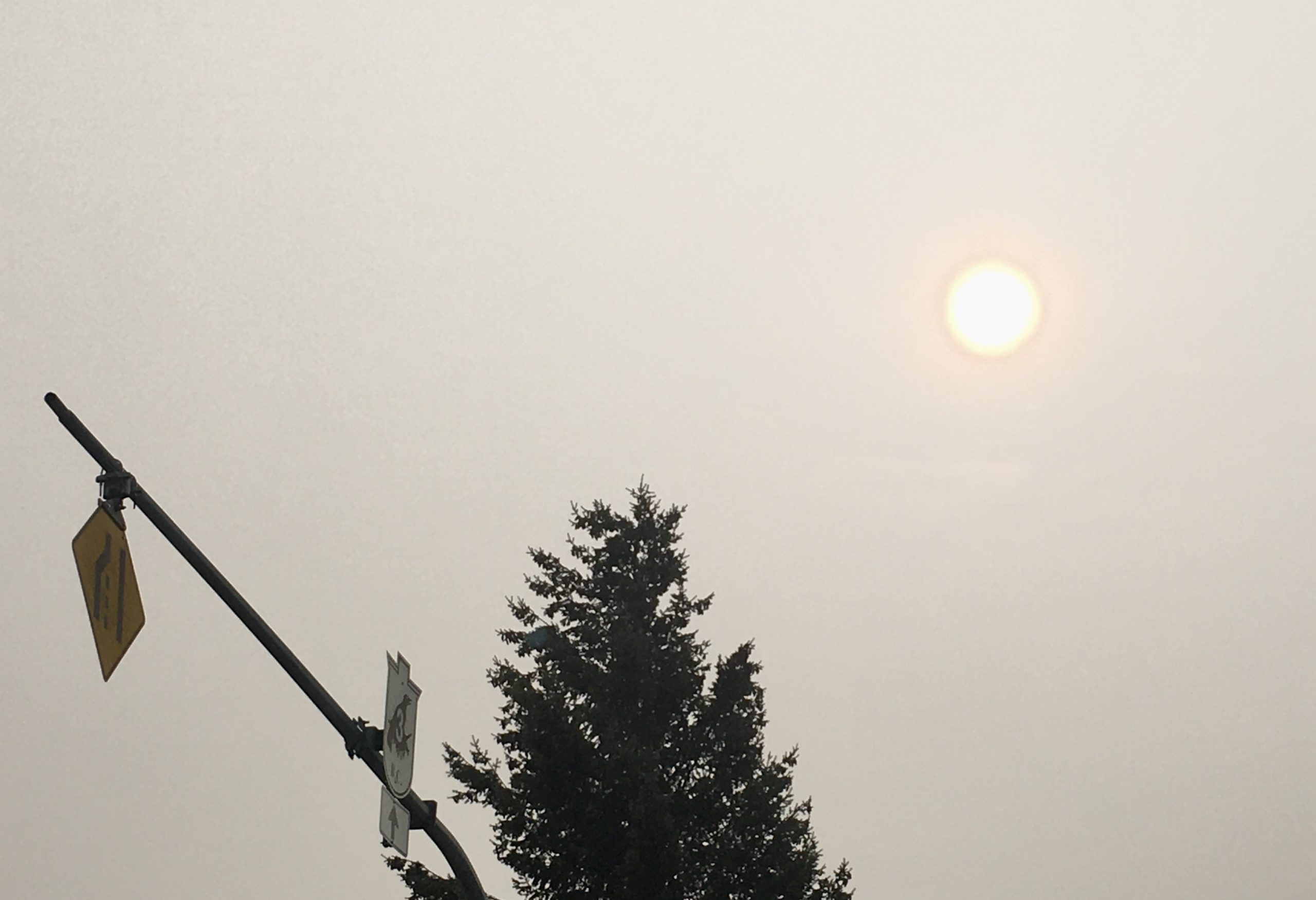Wildfires in the western United States continue to carry smoke over the majority of B.C. as air quality in the Kootenays is being severely hampered.
Whether you are in the East Kootenay, West Kootenay, Kootenay Boundary, or the Okanagan, the B.C. Air Quality Health Index is “10+”, the highest possible rating.
“Smoke can worsen symptoms for those who have pre-existing respiratory conditions, such as asthma, allergies and chronic obstructive pulmonary disease (COPD),” said Interior Health.
“Smoke can also worsen cardiac disease. Inhaled particles trigger the release of chemical messengers into the blood that may increase the risk of blood clots, angina episodes, heart attacks and strokes,” noted the health authority. “People with chronic cardiac conditions are more susceptible to chest pain, heart attacks, cardiac arrhythmias, acute congestive heart failure or stroke.”
Typical symptoms of increased smoke exposure include:
- Difficulty breathing
- Chest pain and discomfort
- Coughing
- Irritated eyes, nose, and throat
With schools open for the year, and classes fully returning this week for regular instruction, Interior Health is recommending people stay indoors as much as possible and close windows if they can.
Interior Health is also advising schools to:
- Ensure students are situated appropriately apart
- Keep classroom windows closed
- Encourage students to wear closely fitted masks, which will provide some protection
- Restrict outdoor physical education and limit indoor physical education to lower intensity activity
The health authority is recommending that people eliminate outdoor exercise until the air clears.
“If you are near the fires where smoke or particulates are significant, or the smoke is making them sick, consider leaving the area until the air is clear again,” said Interior Health. “If wildfire smoke is triggering mild symptoms individuals should take medications as prescribed and use a rescue inhaler if one has been prescribed. You should not take more medication, or take it more often than prescribed.”
MORE: B.C. Air Quality Health Index (B.C. Government)





